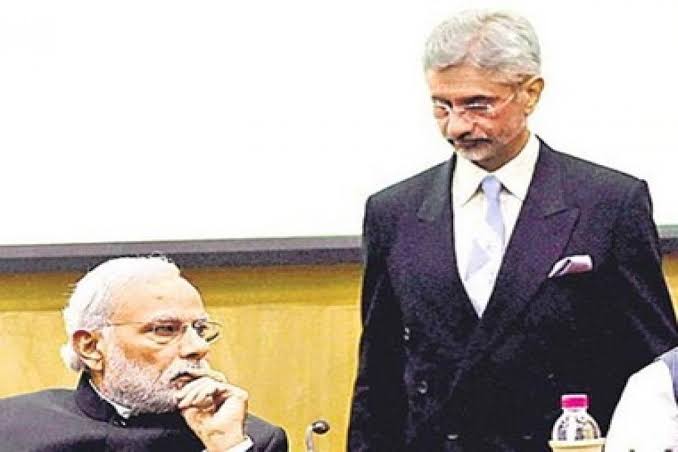India has not quite yet changed the horses midstream but it seems to have asked its’ two important guests to to lend a shoulder for it to shift its’ diplomatic destiny in 2020 and beyond.
Russia’s foreign minister Sergey Lavrov and his Iranian counterpart Mohammad Javid Zarif were in Delhi yesterday and met their Indian equivalent Dr. Subrahmanyam Jaishankar, as well as Indian prime minister Narendra Modi, to help India fit in in the diplomatic attire it now wants in the Middle East.
India has been alarmed with the duplicity of its professed friend United States which hosted a 2+2 meeting (foreign and defence ministers of the two nations) for India in Washington last month but gave no inkling of the assassination it had planned for Iranian General Qassem Soleimani within days which has bloodied and disfigured India’s domestic and foreign interests.
India stunned by US betrayal
India has been snuggling up to Saudi Arabia and Israel, and downgrading its commitment to Iran, for some time now which was viewed as pointers to its closeness to the United States. But now this presumption has been torn to shreds: Not only United States shrouded a dagger in its sleeve but in the wake of General Soleimani’s assassination, it chose to call up Pakistan’s army chief General Qamar Bajwa while ignoring India’s top brass completely. Even Donald Trump, who never tires of terming Modi as his dear friend, didn’t bother to ring up the Indian prime minister. All that bonhomie of last few years between the two amounted to nothing. To rub further salt into India’s wounds, the State Department has now announced the resumption of US-Pakistan military co-operation.
India’s domestic compulsions are no less compelling. It has mounting energy bill from the Middle East which could hit sky if the region descends into chaos. It would only add to India’s present economic woes. It also has to worry about its 8 million large diaspora in the Middle East—and many more if one counts their families back home–which sends a sizeable remittance of $40 billion every year. India also has the second-largest Shia population in the world, 45 million by the last count, which is furious by Gen. Soleimani’s assassination: Down United States and pro-Iran slogans have been witnessed in Kargil, a part of erstwhile Jammu and Kashmir state.
It’s also pretty apparent that Iran is the umbrella under which anti-US sentiments in the Middle East has now grown to a feverish pitch in the Middle East. Iran’s militia proxies operate from the bases of most nations of the region and its’ missile strike at two airbases in Iraq last week showcased that Iran doesn’t need to be a nuclear power to inflict damage on the United States.
India has begun to warm up to Iran
India has been on a course-correction vis-à-vis Iran for a few weeks now. It refused to be part of a global naval alliance which the United States had called upon to secure the Persian Gulf. India was startled when Iran, in conjunction with Russia and China, launched a joint naval exercise from the Chabahar port in response for four days last month. It was a sure sign that Iran has important friends and the Chabahar port in which India has invested so heavily and yet ignored under the US pressure, could slip out of India’s grasp. Chabahar essentially allows India to maneuver in its extended neighbourhood. A strong Iran is also a good bet against Islamic State (IS)—buoyant now that its sworn enemy General Soleimani is dead—who could unleash terror against India’s interests in the Middle East and closer home.
India would hope its old friend Russia is a good bet to mend its’ fences with Iran as it looks to align its’ interest in the Middle East of now. Russia is now a force and an arbiter in the Middle East, a stabilizing presence against a chaotic and war-mongering United States. It has ears of diverse and even conflicting forces of the region, be it Turkey, Iran, Iraq, Syria or Saudi Arabia, Israel and Libya.
It’s in this respect that India gave a full-throated welcome to Lavrov. Lavrov, and Zarif, on their part, would be equally keen to return the Indian warmth. Russia is now ambitious to have a presence in Indo-Pacific—as Lavrov’s comments in Sri Lanka on the eve of his India visit testify—and Iran shares too deep historical and cultural ties with India to stay away for too long.
The United States sent its own two important functionaries on the occasion: Deputy national security adviser Matthew Pottinger—a known-China baiter and Alice Wells, assistant secretary for South and Central Asian affairs. But theirs was a sideshow, neither gaining audience from India’s big men nor securing any guarantee that India still has positive lens on the United States.
(A modified version of this piece was published in rt.com).


